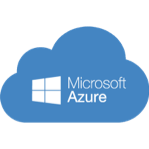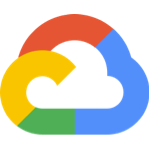-

How Much it ll cost to build an app like
- Cost to develop an Uber Tow Truck App
- Cost to develop a Pest Control App
- Cost To Develop a Handyman App Like Uber
- Cost To Develop a Doctor Appointment Booking App
- Cost To Develop An App Like MoodBites
- Cost To Develop An App Like SkipTheDishes
- Cost To Develop An App Like Q Chat
- Cost To Develop An App Like TickTick
- Cost To Develop An App Like ContractBook
- Cost To Develop An App Like Utter
-

How Much it ll cost to build an app like
- Cost to develop a Video Editing Mobile App like Magisto
- Cost to develop a Live Video Streaming App like Twitch
- Cost to develop an app like Home Workout- No equipment
- Cost to develop a Sports News app like theScore
- Cost to develop an Application like Reddit
- Cost to develop a Sports News app like theScore
- Cost to develop an E-learning platform like Udemy
- Cost to develop an On Demand Doctor App like Heal App

Social Giant or Search Engine Giant: Which to Use for Advertising – Google or Facebook?
It is one of the oldest and toughest decisions that small businesses have to make when it comes to digital marketing; what platform do you use to advertise your products, services, and website? Do you head on over to the social media giant where there are mass droves of daily users or do you capitalize on the astronomical searches that take place on the most popular search engine in the world? To help you answer this question, we’re going to outline a few key categories that will help you decide which platform is right for you – Google or Facebook.
Geographic Engagement & Audience Size
It goes without saying that small businesses are very much aware of just how large of a pull both Google and Facebook have as platforms.
For small businesses located in Canada or Atlantic Canada, Google is the leading online platform for internet searches, while Facebook has 25.52 million users in Canada [1]. The number of Canadian users for Facebook is estimated to climb to 25.86 million in 2022, 26.16 million in 2023, 26.47 million in 2024, and 26.75 million by 2025 according to Statista.com. That’s a growth of 1.23 million users in Canada alone by the time 2025 hits.
When we take a look at Google, the search engine giant had a market share of over 91% in January 2021 alone [2]. To put this in perspective, Bing was ranked second with only a 4.94% market share and privacy search engines such as DuckDuckGo had a measly 1.22% of market share for Canada.
Another geographic engagement that is important to consider is that Facebook owns Instagram. This social media platform pulls in well over 12 million internet users in Canada on a daily basis, with the projection to increase up to 14+ million by 2023 [3].
So, who wins here? This depends on what you are trying to sell and which platform your target audience uses the most. If you are running products that sell well with video and images, you may want to go with Facebook & Instagram, whereas, if your products are more search-oriented, go with Google.
Which Platform Understands Buyer Intent Better?
Buyer intent is essentially data that indicates what a prospective customer is interested in purchasing. Data tools are used to understand a buyer’s journey through a platform and learn to suss out which data counts as intent and which data is just normal behavior by the buyer. This type of data and the tools used to capture it is what gives small businesses and organizations the ability to communicate ads and capture leads.
While Facebook Ads are fantastic for helping you increase your outreach and build up an audience through ad exposure, they don’t have the best tools for buyer intent. If you’ve ever seen an ad in your Facebook newsfeed that makes you go, “why would I ever buy that?” then you understand. Generally, here, Facebook is great for increasing brand awareness rather than getting immediate conversions.
So, why does Google win here?
An individual that is looking for a specific service is more likely to follow through on the conversion when they search that service up via Google’s search engine. Someone who is looking for cat grooming services isn’t going to go searching for an advertisement in their Facebook feed. Instead, they will simply just search for cat grooming services near them via Google. This pretty much follows suit with products. Unless you have a highly targeted ad that the buyer saved for later, they are way more likely to search it in Google and come up with the answer right away.
Ad Creativity & Room to Showcase
The final element you should look at for advertising in North America is the ad format that each platform gives you. The choice here should be on the preference around how you want to gain attention and how much creative space you need to do so. With Google Ads, you get a very small text block to write up an advertisement in, whereas, with Facebook Ads, you get both a text box and a visual element (image) to add. With Facebook, your advertisement is going to look a lot more aesthetically pleasing and way more eye-catching to your audience.
Who wins here? Facebook.
While Google Ads, the text box is enough for how they are displayed and the text can be well optimized, but the lack of visual elements makes the ads less effective. For small businesses who run eCommerce shops or want to advertise products and services with images, Facebook Ads definitely wins here as they have several ad formats to choose from.
If you are looking for help with your digital marketing and advertising campaign in Canada, reach out to us and we can help devise an advertising strategy for Facebook or Google. You can give us a call here or send us a shout via email.

Author
Our Partners




WhatsApp us



